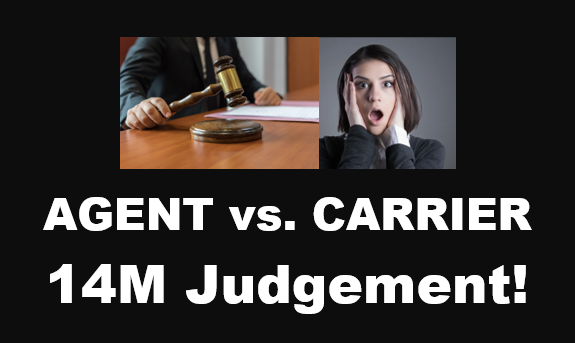
A captive agent in Ohio felt misled after her efforts to build a successful agency fell apart. Then ensuing lawsuits involved all levels of the state judiciary.
The carrier recruited the agent under a program it had created to bring in new agents. They gave the new agents three years to reach $1.2 million in premium volume. If they met the goal, they became career agents. If they met higher production goals, some or all of the loans they took out to start their agencies would be forgiven.
This agent worked with a carrier sales manager to develop a business plan and pro forma. She eventually signed a contract, but she did not see the final versions of the business plan and pro forma that became part of it. The contract stated that she had an active role in developing the plans and that the carrier did not guarantee success.

The agent used a $290,000 loan from a subsidiary of the carrier to start the agency and hire two employees. She met with initial success, surpassing the minimum production requirements and winning awards. However, as time went on her new business production slipped and her cash flow decreased. This was a problem shared with other new agents participating in the program, indicating that the carrier’s pricing may have become uncompetitive.
Due to the widespread problems, the carrier offered agents in the program three options:
- Remain in the program.
- Leave the program with their loans forgiven and with the carrier paying off other agency obligations.
- Participate in a modified version of the program.
The agent signed an agreement in which the carrier gave her funds for a new business plan and reimbursements for business expenses, in exchange for her releasing the carrier from all future claims she may have against them. Believing that, if she refused to sign, the carrier would terminate her contract and demand immediate full payment of the loans, she signed the agreement.
The carrier rejected the business plan she created with an accountant, then dictated a new plan to her. Still, she fell behind on production goals. The carrier gave her additional funds, and she hoped to acquire the books of business of two retiring agents.
She later signed an agreement entering the modified program in which she stated that she was “under no economic duress.” The program gave her an additional three years but increased her minimum production requirement to more than $1.5 million. Things went downhill from there. She met production goals but still had poor cash flow, resulting in missed loan, rent and tax payments and the firing of her only other agent. As her production slipped, the carrier placed her on probation and began withholding commission payments to repay the loan. She eventually resigned.
She sued the carrier for breaches of her contracts, misrepresentation and fraud. The carrier sued her for the amount of the defaulted loan. She added claims of retaliation and constructive discharge to her suit. At trial she produced expert testimony that her earnings over 25 years would have been $2.8 million at current price levels. A carrier employee testified that the sales manager she worked with fraudulently altered her business plan so she would qualify for a loan.
The trial court awarded her $3.7 million in compensatory damages and $10.5 million in punitive damages, plus another $200,000 for fees and costs. The appellate court both upheld and reversed some of the trial court’s judgments and reduced the amounts of damages awarded. The state supreme court reversed the breach of contract and fraud awards but left other portions of the verdicts intact. They sent the case back to the appellate court. The record ends there – attorneys for both sides likely negotiated a confidential settlement.
This agent signed contracts that the supreme court found to be binding, despite her claims of duress, but the carrier’s hands were not clean, either. The lesson for all aspiring captive agents: Read the contracts carefully before signing, and be prepared to take an offered exit if things are not working out.















